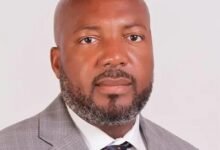The Eʋes of Ghana – A short contemporary survey
The name Eʋe
ON the outset, note the spelling of the ethnic group, Eʋe and not Ewe. It is for lack of an appropriate letter in English that the spelling, ewe came to be used. Every language is written using its own alphabets, unless the language has no alphabets of its own. Why use English alphabet to spell a word in Eʋe?
Ewe as it is spelt, means a female sheep in the English language. The correct spelling, Eʋe, borrowing from the traditional alphabet of the language, must be used instead and would be adopted throughout this article.
Meaning of Eʋe
The word Eʋe is derived from the geography and pastime of the people, according to Lorrance in his book, “The Eʋes of Togo and Benin”, the Eʋes are traditionally farmers who choose to live in valleys where the water table is high and therefore their lands support year round farming activities.
Even Eʋes who live near water bodies, still indulge in some degree of farming. The Eʋes are therefore called, people of the valley or low land, eʋeawo, the eʋe people or eʋedukɔ, the eʋe kingdom, eʋe state, or eʋe nation.
A casual observer would agree that the current abodes of the Eʋes are all mostly in the valley areas of the Volta Region. The non Eʋes rather occupy the high grounds, which gives the non Eʋes, because of their small numbers, tactical advantage in times of hostilities. The Asantes and Akwamus, learnt this truth to their chagrin in the past.
Location of the Eʋes
Geopolitically, the Eʋes occupy areas in Ghana, Togo, Benin and South Western tip of Nigeria – Badagry. Perhaps, one of the most internationalised ethnic groups along the West African coast. The Eʋes originally had Ketu, in present day Republic of Benin as their first traditional home. They then moved to Ŋɔtse in the Republic of Togo from where they further migrated to their current locations.
Colonisation
Colonisation, forced the Eʋes generally, to speak three European languages, English, French and German. When the Germans arrived in 1884, as colonialist, they treated their colony, German Togo, as if all the inhabitants were Eʋes.
The church representing the christian faith, the Germans brought, was named, Eʋe Prebytarian Church. The name of the church was later changed to Evangelical Presbyterian Church on the insistence of the non-Eʋes.
Groups and Divisions
Traditionally, the Eʋes in Ghana, are in two groups, northern and southern Eʋes and in numerous sub-ethnic groups represented by the location of the paramountcy. Peki, Pekipon (Hohoe area), Anfoe, Have, Kpando (Akpini), Alavanyo, Gbefi, Leklebi, Ve, Tsito, Bankoe and Dome, in Ho, Adaklu, Dzolo, Kpetɔe, to name some of the Northern Eʋes.
The northern Eʋes, except Peki, were part of the German Colony of Togo which joined Ghana at independence. These are the bɔbɔbɔ people who mostly live in the forest areas. They harvest cocoa and coffee and eat fufu, they are good hunters too.
Southern Eʋes were already part of the Gold Coast, and therefore, Ghana at independence. The sub-ethnic groups of the southern Eʋes are; Agave, Sokpe, Mamfi, Adidome, Battor and Fievi – these are generally known as the Tɔŋus or people along the river, referring to the Volta River.
Then, Some, Klikor, Aŋlɔ, Avenɔ, and Ave. These are the akple, and konkonte eaters and also some well accomplished fishing folks. They dance agbadza, kinka and other related dances. Their climate is, coastal savannah. The list is in no way exhaustive.
Non-Eʋes
It is difficult to write about Eʋes without mentioning the non-Eʋes from Avatime, Logba, Tafi, Nyagbo and the rest, most of whom are in the Oti Region now. Such have lived with the Eʋes from the very beginning.
Indeed the non-Eʋes predated the Eʋes in their present locations. They lived with the Eʋes through thick and thin. Some are authorities even in the writing and use of the Eʋe language.
Contributions to Ghana
Ghanaian Eʋes played very important roles during the struggle for independence and after. Philip Gbeho of Aŋlɔ composed the national anthem while Dr Ephraim Amu from Peki Avetile, composed, what can be called, the indigenous national anthem of Ghana – Yɛn ara asase ni.
Furthermore, many other Eʋes played leading roles during the struggle towards independence for Ghana. One notable name in the political scene was Komla Agbeli Gbedemah, from Aŋlɔ, Anyako.
Gbedemah worked closely with Kwame Nkrumah and it was he who manuevered for Nkrumah’s name to be on the ballot box when Nkrumah remained in prison.
Nicknames
As you have read, the Eʋes have no other name than Eʋe. Aŋlɔni, Ayigbeni and Number 9 ni, are all fake names and must be discontinued. Eʋes do not like such nicknames.
Aŋlɔs, you have read, are part of the Eʋes. Ayigbe is a nickname given by the Ga people in Ghana to their fellows in the Republic of Togo. Indeed, an elderly Ga man, told me that any Ga who calls an Eʋe as ayigbe, must be an illiterate. The name ayigbe has nothing to do with the Eʋes.
Finally, the name Number 9 was given to the Eʋes after the first Miss Ghana was crowned. The Lady came from Alavanyo amongst northern Eʋes. She was called Monica Amekoafia. She wore number 9 tag. Should this event become a nickname? Or create a sense of pride for the Eʋes?
In summary, the name Eʋe was coined from the equivalent of the word, valley, in the Eʋe language. Eʋeawo, the people of the valley. Eʋes love to stay close to sources of water because of their farming activities.
Eʋes, generally can be found in four political entities, Ghana, Togo, Benin and Nigeria.
The Eʋes in Ghana are in two groups, northern and southern Eʋes. While the northern Eʋes, except Peki, were first colonised by Germany before joining Ghana at independence, the Eʋes in the south were indigenous to Ghana.
Non Eʋes among the Eʋe ethnic group, Avatime, Logba, Nyagbo, Tafi, and others, are almost inseparable from the Eʋes.
The two most popular anthems in Ghana, the national anthem and the indigenous song, Yen Ara Asase ni, were composed by Eʋes. Eʋes also played important political roles before Ghana’s independence.
This short survey talked of one and only one ethnic group, called Eʋes. People who call other names for the same ethnic group must be disregarded.
BY WG. CDR. KWAKU KEKREBESI (RETD)
[The writer is a Pilot. He was with the Ghana Armed Forces.]
Email/Mob: kkekrebesi@gmail.com
020 813 4583




